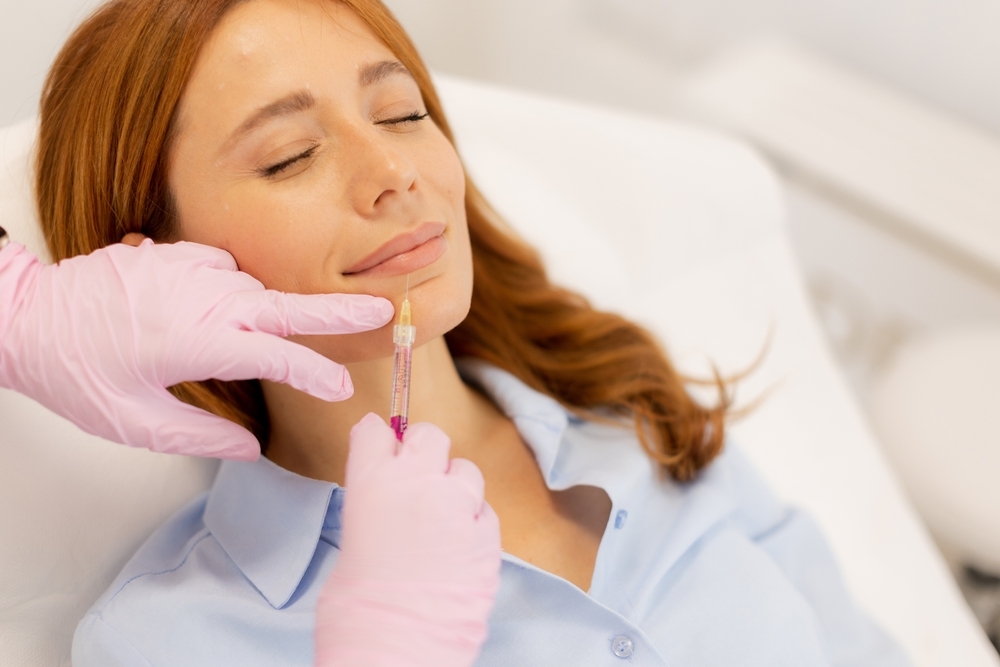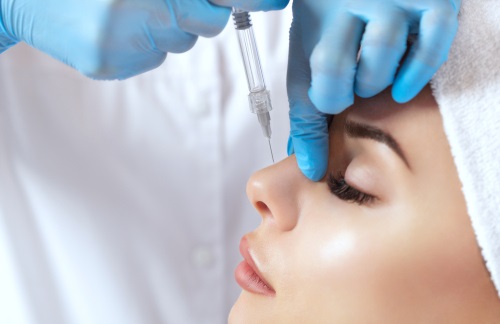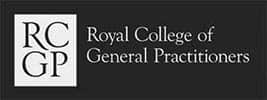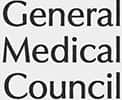The venesection was painless to say the least, thank you for using local anaesthetics; highly recommended
What Is Testosterone Replacement Therapy (TRT)?
Testosterone is an essential male sex hormone produced in the testicles. Men need healthy testosterone levels to maintain their sex drive, sperm count, muscle mass, bone health, cognitive function, red blood cell production, and several other critical bodily functions.
As many men age, their testosterone levels can decline, resulting in many adverse side effects. If you have noticed a decline in your testosterone levels, you may experience various negative symptoms. Testosterone replacement therapy (TRT) can help boost your testosterone levels to improve your health and vitality.
Types of Testosterone Replacement Therapy
Testosterone replacement therapy at our London clinic is only prescribed following a complete medical assessment and diagnosis of low testosterone levels. We have several testosterone replacement therapy options conveniently located in London for you to choose from. These include:
• Testosterone transdermal: This can be in the form of gels or a patch that releases minute amounts of the hormone into the skin and is applied once per day, usually in the evening.
• Testosterone injections: The most popular brand for a sustained testosterone injection is Nebido, which is typically administered every 10 to 14 weeks. Needles and a sharps bin are available through our in-house, ongoing sharps bin disposal service.
• Testosterone tablets: Restandol is the most common brand used for the prevention and management of androgen deficiency, which causes low testosterone.
Pros and Cons of Testosterone Therapy
Numerous studies have shown that testosterone replacement therapy is beneficial for symptomatic men with low testosterone levels; however, the success of TRT will ultimately be determined by how the individual’s physiology responds.
Research indicates that the pros of low testosterone treatment include:
• Increased cognitive function: According to research, testosterone treatment in males with low testosterone levels can have neuroprotective benefits, resulting in improved cognitive function and memory.
• Improved mood and energy levels
• Increased strength and muscle mass: Testosterone acts as a performance-enhancing drug for many reasons. This hormone helps to build strength and muscle mass, as well as maintain fat loss. Active men may notice they gain muscle more easily after starting low testosterone treatment.
• Lower cholesterol levels: Clinical trials have shown low testosterone treatment to lower cholesterol levels.
• Lower risk of:
• Heart disease and heart attack
• Osteoporosis
• Stroke.
According to research, the drawbacks of low testosterone treatment include:
Long-term treatment: TRT may inhibit the body’s natural testosterone production by making the body more reliant on the higher testosterone provided. Once TRT ends, most men will start producing testosterone again naturally. But it’s important to remember that the longer you take TRT, the more time it will take natural testosterone production to return.
Testosterone replacement therapy is generally implemented as a long-term treatment simply because if you were diagnosed with low testosterone levels before starting TRT, you would probably return to the same low levels if you stop receiving TRT.
• Increased risk of:
• Blood clots, deep vein thrombosis (DVT) and a pulmonary embolism (PE), which occur when a blood clot breaks loose and travels to the lung, which can be fatal.
• Oedema, which causes the accumulation of extra fluid in the body that results in swelling of the tissues, is most often seen in the legs and ankles.
• Infertility.
Testosterone Replacement Therapy Side Effects
The side effects of TRT will depend on various factors and may be reversed by altering the type of low testosterone treatment. Common side effects associated with TRT include:
• Male pattern baldness
• Increase in body hair.
• Acne
• Gynecomastia (Growth of male breast tissue)
• Lower sperm count
• Testicular atrophy (shrinking of testicles)
Is Testosterone Therapy Safe?
According to the data that is now available, TRT is generally seen to be safe for males, with only a slight intrinsic risk of negative outcomes in a few high-risk groups of men who have a variety of medical comorbidities. Two key concerns in the safety of TRT are:
• Prostate cancer: The total prostate size does grow in older men receiving testosterone therapy. However, this increase is similar to the increase in prostatic hypertrophy observed in older men who are not using TRT.TRT has been linked to mild elevations in blood PSA, but these levels are still within safe clinical limits and do not provide strong evidence of an elevated risk of prostate cancer. Men taking TRT should have regular PSA monitoring.
• Cardiovascular disease: Research has indicated that TRT may increase the risk of cardiovascular disease or death rates. Data also shows that men with major comorbidities are more susceptible to cardiovascular complications.
What Are Low Testosterone Symptoms?
Key signs that you may be suffering from low testosterone are:
• A drop in your libido
• Less desire for sexual activity
• Changes in mood
• Loss of cognitive function
• Fatigue
• Feelings of depression
• Lower energy levels
• Trouble concentrating
• Insomnia
• Erectile dysfunction and the inability to maintain an erection
You may have low testosterone levels when experiencing these signs and negative symptoms. The best way to know for sure is to book a free consultation with a UK testosterone expert at our London clinic.
What Causes Low Testosterone?
It’s normal for a man’s testosterone to lower as he ages, but even men in their 20s and 30s can experience symptoms of low testosterone. Several factors cause this — often driven by lifestyle choices. These may be:
• Having an unhealthy diet
• Smoking
• Lack of exercise
• Weight gain
• Leading a high-stress life
• Previous steroid use.
Can I Increase My Testosterone Levels Naturally?
You can boost your testosterone levels naturally. One of the most significant strategies to treat low testosterone in overweight or obese persons is to decrease body fat through a combination of high-intensity exercise and a healthy diet. Reducing excess body fat can help rebalance hormones, improve insulin sensitivity, reduce inflammation, and reduce oestrogen levels associated with fat deposits.
Research indicates that weight training could briefly boost testosterone levels. Stress reduction may be important because cortisol, which is elevated by stress, may inhibit testosterone production.
Men aged 50 or over with low testosterone levels will generally require TRT to raise their levels. However, maintaining low body fat and addressing symptoms of stress and anxiety are still important.
Testosterone Replacement Therapy in the UK
If you live in the UK or London, testosterone replacement therapy from our Harley Street clinic can help you live a healthier and happier life, last longer in bed and be more physically active.
All of our UK-qualified practitioners are dedicated to improving your wellbeing and happiness. Your work, sex life and hobbies are important to us, and we’ll work with you to find the most effective solutions that will help you feel great, no matter your age.
If you live in the UK and are embarrassed to talk to your GP about your sexual concerns or any other symptoms of low testosterone, we can help. With Harley Street MD, we take your concerns seriously and work with you to get results. Your anxieties and expectations will always be our top priority — and we’ll always take you seriously.
Book a private consultation for TRT in London with our qualified doctors at Harley Street MD, right away!
Testosterone Replacement Therapy Cost
The cost of testosterone replacement therapy will depend on your choice of low testosterone treatment and the blood tests you require to ensure your treatment is working.
At Harley Street MD in London, there is an initial cost of £695 for your consultation and TRT screening with blood tests. The costs of any additional tests and ongoing treatment and monitoring with blood tests will be discussed with you at your consultation.
Why Have TRT at Harley Street MD in London?
We practice safe and effective testosterone replacement therapy in the UK at our CQC-registered clinic in Harley Street, London. The clinic is doctor-led by Dr Chia Tan, the founder of Harley Street MD, and registered with the Care Quality Commission (CQC).
Dr Chia Tan is a doctor with a General Medical Council (GMC) registration who trained and studied surgery and family medicine in the United Kingdom. He has extensive experience in endocrinology and urology and holds a diploma from the Faculty of Sexual and Reproductive Healthcare (FSRH).
One of London’s renowned male health experts, Dr Tan is well-known in the bodybuilding, powerlifting, and fitness communities. He offers TRT and other specialised services, providing non-judgmental advice with an unbiased and effective approach. If required, referrals to other specialists, such as a urologist or endocrinologist, are free of charge. Let our testosterone replacement therapy make a difference in your life.
Make an appointment for testosterone replacement therapy at our London clinic today.
What Is Included in TRT Screening in London?
- A one-hour confidential consultation and examination with a male doctor to discuss sexual health and symptoms of testosterone deficiency, followed by a half-hour consultation after test results.
- Vital signs monitoring — blood pressure, heart rate, oxygen saturation, weight, height, BMI and body fat calculation.
- Physical examination of the cardiovascular, respiratory, gastrointestinal, musculoskeletal and nervous systems.
- Ear, nose and throat examination, including thyroid glands and lymph nodes.
- Examination of the visual fields and fundi (for prolactin-secreting brain tumour).
- Testicular and prostate examination.
- Complete health profile blood tests for anaemia, infection and inflammatory markers, leukaemia, kidney function and electrolyte balance, liver function, bone metabolism, gout and diabetic screen, full cholesterol profile, vitamin D and thyroid function (free T3, free T4 and TSH).
- Prostate profile blood test (prostate cancer screen) and subsequent advanced screen (total and free PSA) if found to be raised.
- Complete hormone profile blood tests: LH, FSH, testosterone, oestradiol, SHBG, prolactin and free androgen index.
- Complementary adrenal axis hormone blood test: Cortisol and DHEA-S to complete your 360-degree hormonal balance screening.
- Calculation of free testosterone levels.
- Comparison of testosterone levels to an age-specific chart and national guideline for TRT.
- Urine analysis is used to check for protein, blood, infection, sugar, and ketone content.
Book a confidential consultation in your trusted aesthetic clinic in London for low testosterone treatment at Harley Street MD with our experienced doctors today.
Evidence-Based Research and Studies
The research and studies references that we used in addition to our internal research have all been referenced here; most of them have an external link to the scientific publication. We work hard to bring you the most recent, impartial, factual, and evidence-based information to help you make informed decisions.
References
• Grech A, Breck J, Heidelbaugh J. Adverse effects of testosterone replacement therapy: an update on the evidence and controversy. Ther Adv Drug Saf. 2014 Oct;5(5):190-200. doi: 10.1177/2042098614548680. PMID: 25360240; PMCID: PMC4212439. From: NCBI NLM.
• Osterberg EC, Bernie AM, Ramasamy R. Risks of testosterone replacement therapy in men. Indian J Urol. 2014 Jan;30(1):2-7. doi: 10.4103/0970-1591.124197. PMID: 24497673; PMCID: PMC3897047. From: NCBI NLM.






















